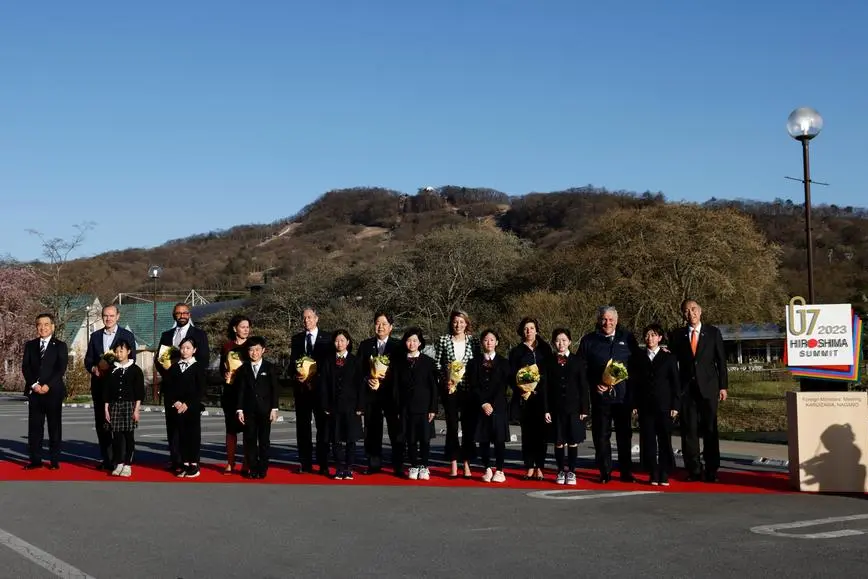PHOTO
KARUIZAWA - Foreign ministers from the Group of Seven nations will likely discuss their "common and concerted" approach to China when they meet from Sunday, reflecting shared concern about Beijing's actions, a senior U.S. State Department official said.
China is front and centre as ministers from the G7 group of rich countries meet for three days in the Japanese resort town of Karuizawa. The only Asian member of the grouping, Japan has deepening worries about neighbour Beijing's growing might in the region and is particularly concerned about any military action against Taiwan.
Beijing views Taiwan as Chinese territory and has not renounced the use of force to take the democratically governed island. Taiwan President Tsai Ing-wen says only the island's people can decide their future.
Recent comments by French President Emmanuel Macron have highlighted potential differences between Europe and the United States on China. In interviews after he visited China this month, Macron cautioned against being drawn into a crisis over Taiwan driven by an "American rhythm and a Chinese overreaction".
That prompted a backlash, and on Friday European foreign policy officials urged Beijing not to use force over Taiwan, taking a tough stance.
"There is collective concern about a number of the actions that China is taking," the U.S. official told reporters on the plane to Japan from Vietnam, declining to be identified because of the sensitivity of the information.
In Vietnam, Secretary of State Antony Blinken met with Vietnamese Prime Minister Pham Minh Chinh. Both sides expressed a desire to deepen their ties, as Washington seeks to solidify alliances to counter China.
There would likely be a discussion on how the members could continue to take a "common and concerted approach," to China, the official said.
Recent G7 statements have included calls for candid and constructive engagement with Beijing while recognising that "individually all the G7 members have deep economic relationships" with the world's second-largest economy, the official said.
UNITY
German Foreign Minister Annalena Baerbock sought to underscore the unity among G7 members.
"As democracies, we are successful in systemic competition with autocratic forces when our partners and friends around the world have confidence in us. We must avoid that our unity is misunderstood by others as separation or that new rifts are opened," she said in a statement before her trip to Japan.
Taiwan would also be a subject of discussion, the senior U.S. official said but declined to comment on any specific new language.
For host nation Japan the crisis in Ukraine has heightened concern about the potential for Chinese military intervention in nearby Taiwan.
"For Japan, the G7 is a platform in which it can say that security issues aren't just about the Ukraine war," said Yoichiro Sato, an international relations professor at Ritsumeikan Asia Pacific University.
"To put China on the agenda is not just important for Japan, but also the United States," he said.
In a statement, Britain's Foreign Office said G7 ministers would discuss how international support can be used most strategically to help Ukraine forces continue their progress on the battlefield and "secure a lasting peace".
(Reporting by Humeyra Pamuk and Sakura Murakami; Additional reporting by William James in London and Andreas Rinke in Berlin; Editing by William Mallard)





















